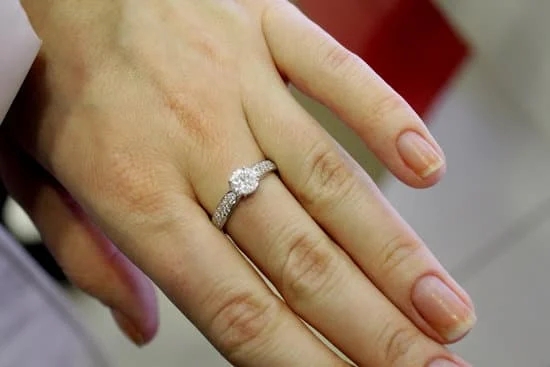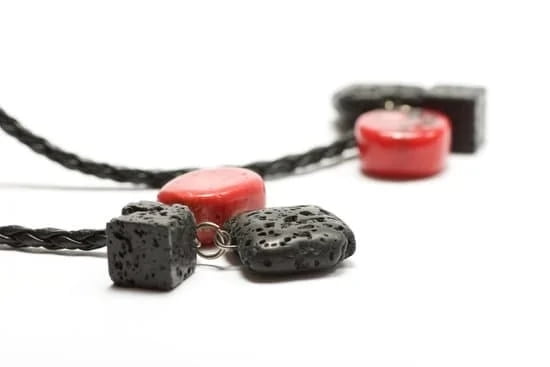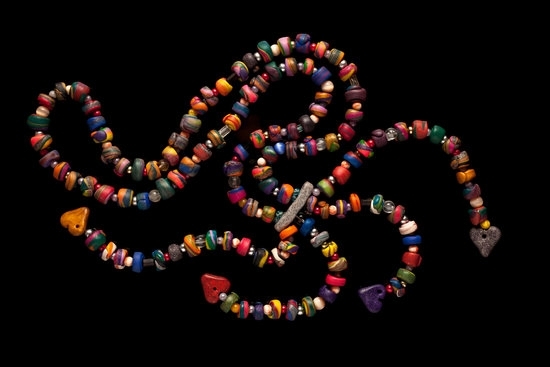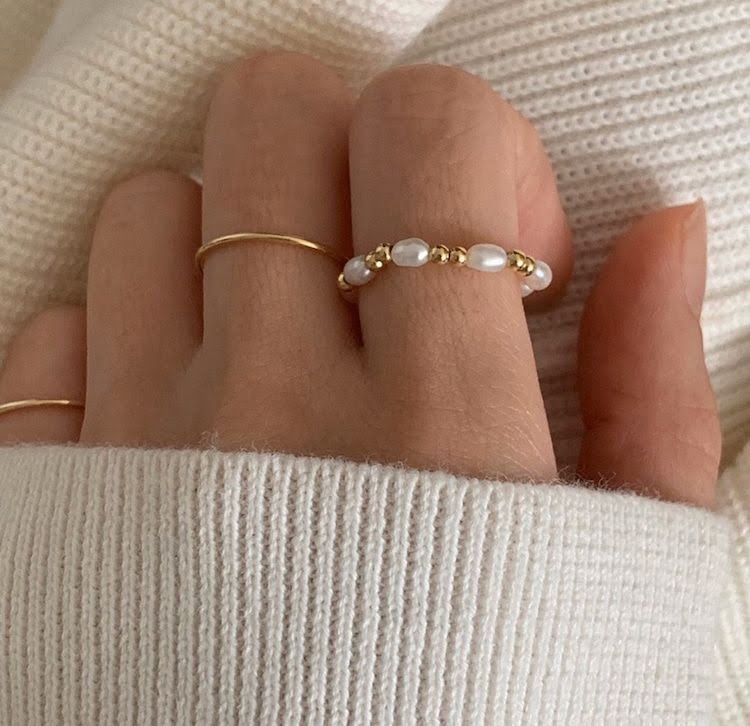In the glittering world of diamonds and luxury, there is a dark side that often goes unnoticed by consumers – the issue of blood diamonds. These are diamonds that have been mined in war zones and sold to finance armed conflicts against governments. The awareness about the human rights abuses associated with these diamonds has increased over the years, leading to global efforts to eliminate their presence in the market.
This article aims to shed light on which American jewelry companies have been implicated in purchasing blood diamonds, exploring the controversies and allegations surrounding them. It will also delve into the efforts made by some companies to ensure ethical sourcing of diamonds and examine certification programs that guarantee they are conflict-free.
Understanding the controversy surrounding blood diamonds is crucial because it brings attention to the ethical questions consumers must consider when purchasing jewelry. By being informed and aware, individuals can make choices that support American jewelry companies with transparent supply chains free from any association with blood diamonds.
Ultimately, consumer demand has a significant impact on shaping industry practices, making it essential for us to explore how our choices can contribute towards ending the reign of blood diamonds within the American jewelry industry.
Unveiling the Dark Side
Blood diamonds, also known as conflict diamonds, are diamonds that are mined in war zones and sold to finance armed conflicts against governments. These diamonds have a long history of being associated with human rights abuses, violence, and exploitation. The term “blood diamond” gained significant attention in the early 2000s when civil society organizations highlighted the link between diamond trade and funding for rebel groups in conflict-ridden countries such as Sierra Leone, Angola, and the Democratic Republic of Congo.
The issue of blood diamonds matters because their production and trade contribute to widespread human rights abuses and undermine efforts for peace and stability in affected regions. Many of the mines where these diamonds are extracted are controlled by rebel groups or militias who exploit workers, use forced labor, commit acts of violence against communities, and disrupt governments. The profits from selling blood diamonds often fund armed conflicts that cause immense suffering and loss of life.
The impact of blood diamonds extends beyond the countries where they are sourced; they can enter global markets through various channels and end up being set into jewelry sold around the world. This means that unsuspecting consumers may unknowingly purchase a diamond that has been tainted by the suffering of others.
Ethical concerns surrounding blood diamonds have prompted calls for transparency and responsible sourcing throughout the diamond supply chain to ensure that consumers can make informed choices about the jewelry they buy.
Why Does it Matter?
Blood diamonds matter for several reasons:
- Human Rights Abuses: The production and trade of blood diamonds often involve gross human rights violations such as forced labor, child labor, violence against communities, and corruption. Supporting this trade perpetuates such abuses and undermines efforts to protect human rights globally.
- Funding Conflicts: The revenue generated from selling blood diamonds is used to finance armed conflicts against governments or to fuel civil wars. This exacerbates instability in affected regions, reinforces power imbalances, reduces socio-economic opportunities, and prolongs humanitarian crises.
- Lack of Accountability: Blood diamonds are often smuggled out of conflict zones, mixed with legally sourced diamonds, and then enter the legitimate diamond supply chain undetected. This lack of accountability allows the trade in blood diamonds to continue and makes it difficult for consumers to ensure they are purchasing ethically sourced diamonds.
- Environmental Impact: The extraction of diamonds, including blood diamonds, can have significant environmental consequences, such as deforestation, soil erosion, water pollution, and the destruction of ecosystems. Responsible sourcing practices help mitigate these environmental impacts.
The issue of blood diamonds goes beyond the jewelry industry; it is a global concern that demands collective action from governments, companies, civil society organizations, and consumers. By understanding the dark side of blood diamonds and why they matter, we can begin to address the challenges surrounding their production and trade and work towards a more ethical and accountable jewelry industry.
The Kimberley Process
The Kimberley Process is an international certification system that was established in 2003 with the goal of preventing the trade of conflict diamonds. Conflict diamonds, also known as blood diamonds, are diamonds that are illegally mined and sold to finance armed conflict against governments. The process requires diamond-producing countries to certify that their exports are conflict-free by sealing them in tamper-proof containers and providing a Kimberley Process certificate.
While the intention behind the Kimberley Process is laudable, there have been criticisms about its effectiveness in ensuring ethical sourcing of diamonds. One major criticism is that the process only focuses on preventing conflict diamonds from entering the legitimate diamond supply chain, disregarding other human rights abuses such as forced labor and child labor.
Another concern is that the process relies heavily on self-regulation, meaning that it is up to participating countries to enforce the guidelines set forth by the Kimberley Process. This has led to instances where certificates have been falsified or bypassed through corrupt practices, allowing blood diamonds to enter the market undetected.
Despite these criticisms, it is important to note that the Kimberley Process has made significant progress in reducing the trade of conflict diamonds globally. According to experts, only a small percentage of rough diamonds now originate from conflict areas compared to when the process was first implemented. Additionally, many reputable American jewelry companies strictly adhere to the Kimberley Process and ensure that they only source diamonds from certified suppliers.
However, it is clear that more needs to be done to address all ethical concerns related to diamond sourcing. Transparency and traceability throughout the entire supply chain are crucial for consumers who want assurance that their jewelry does not come at a cost of human suffering or environmental degradation. In order for the Kimberley Process to effectively eliminate blood diamonds from the market, it needs to be strengthened with stricter regulations and better enforcement mechanisms.
American Jewelry Companies at the Center of Controversy
The issue of blood diamonds in the jewelry industry is not a new one, and several American jewelry companies have been at the center of controversy due to their alleged involvement in this unethical trade. While the Kimberley Process has been established to regulate the diamond industry and ensure ethically sourced diamonds, there have been instances where American jewelry companies have been accused of bypassing these regulations.
One notable scandal involved a major American jewelry retailer who was accused of purchasing diamonds from sources involved in human rights abuses. The company faced significant backlash from both consumers and advocacy groups, highlighting the importance of transparency in the jewelry industry.
In another case, allegations were made against an American jewelry brand for sourcing diamonds from conflict zones and using them in their products without proper disclosure. These allegations sparked widespread concern among consumers about the legitimacy of ethical claims made by certain jewelry companies.
Table: American Jewelry Companies Involved in Controversies
| Company Name | Allegations |
|---|---|
| Major American Jewelry Retailer | Purchasing diamonds from sources involved in human rights abuses |
| American Jewelry Brand | Sourcing diamonds from conflict zones without proper disclosure |
These controversies shed light on the need for greater accountability and responsibility within the American jewelry industry. It is essential for companies to conduct rigorous due diligence and make concerted efforts to ensure that their supply chains are free from blood diamonds.
Despite these scandals, it is important to note that not all American jewelry companies are involved in such unethical practices. Some leading brands have taken a proactive stance against blood diamonds, implementing strict sourcing protocols and working with certified suppliers. These companies actively promote transparency in their supply chains and encourage consumers to make informed choices when purchasing jewelry.
In the next section, we will explore how some American jewelry companies are taking a stand against blood diamonds and what steps they are taking to ensure ethical sourcing practices. It is through the collective efforts of responsible businesses and informed consumers that we can bring about positive change and eliminate blood diamonds from the American jewelry industry.
Spotlight on Accountability
The issue of blood diamonds in the American jewelry industry has sparked controversy and concern among consumers. People are becoming more aware of the devastating effects of this unethical trade, which fuels conflict, human rights abuses, and environmental degradation in diamond-producing countries. However, there are some American jewelry companies that are taking a stand against blood diamonds and striving to ensure ethical sourcing practices.
One such company is Brilliant Earth, an industry leader in ethically sourced diamonds and jewelry. They have committed to exclusively using conflict-free diamonds and gemstones that are responsibly mined.
In addition, they go beyond the Kimberley Process, which is a certification scheme aimed at preventing the trade of blood diamonds, by requiring suppliers to adhere to strict social and environmental standards. This level of accountability ensures that their customers can feel confident that their purchases do not contribute to human suffering or environmental harm.
Another company making a difference is Zales. They have implemented rigorous responsible sourcing practices and require their diamond suppliers to meet stringent standards. Zales also actively participates in third-party certification programs such as the Responsible Jewellery Council (RJC), ensuring transparency and ethical standards throughout their supply chain.
| Jewelry Company | Accountability Measures |
|---|---|
| Brilliant Earth | Exclusively uses conflict-free diamonds and gemstones; requires suppliers to adhere to strict social and environmental standards |
| Zales | Implements rigorous responsible sourcing practices; requires diamond suppliers to meet stringent standards; participates in third-party certification programs such as RJC |
These are just two examples of American jewelry companies that are taking a proactive stance against blood diamonds. By researching and supporting these businesses, consumers can play a crucial role in promoting ethical sourcing and responsible practices within the jewelry industry. When customers choose to purchase from companies with transparent supply chains and strong accountability measures, they contribute to the growing demand for ethical jewelry and send a powerful message that blood diamonds have no place in the market.
Decoding Certification Programs
The Importance of Certification
Certification programs play a crucial role in ensuring that diamonds are sourced ethically and are free from any connection to the controversial blood diamond trade. These programs provide a system of checks and balances, allowing consumers to have confidence in the ethical credentials of the jewelry they purchase. American jewelry companies have turned to these certification programs to demonstrate their commitment to responsible sourcing.
Kimberley Process Certification Scheme
One important certification program is the Kimberley Process Certification Scheme (KPCS). Established in 2003, it aims to prevent conflict diamonds from entering the legitimate diamond market by implementing strict guidelines for its members. The KPCS requires participant countries to set up internal controls and traceability systems to ensure that rough diamonds are accompanied by proper documentation guaranteeing their ethical origin.
However, critics argue that the Kimberley Process has significant limitations. It focuses solely on preventing diamonds sold by rebel groups from entering the market while overlooking other potential ethical concerns such as child labor or environmental damage. Furthermore, it lacks a strong enforcement mechanism and transparency, making it difficult for consumers to trust the process fully. As a result, some American jewelry companies have sought out additional certifications to supplement their commitment to ethical sourcing.
Additional Certifications
To further ensure transparency and build consumer trust, many American jewelry companies have adopted additional certifications beyond the Kimberley Process. Some companies choose certifications like Responsible Jewellery Council (RJC), which sets high standards for environmental impact, social responsibility, and human rights throughout the supply chain. The RJC also conducts regular audits and inspections to ensure compliance with these standards.
Other certifications include Fairmined and Fairtrade Gold, which focus specifically on gold mining practices. These certifications provide assurance that workers receive fair wages and operate in safe conditions while minimizing environmental harm associated with mining processes.
Overall, American jewelry companies recognize that relying solely on one certification is not sufficient to ensure ethical sourcing of diamonds. By obtaining multiple certifications, these companies demonstrate their commitment to transparency and responsible practices, giving consumers peace of mind when purchasing jewelry.
Ethical Alternatives and Consumer Empowerment
With the growing awareness and concern surrounding the issue of blood diamonds, consumers are increasingly seeking out alternative options when it comes to purchasing jewelry. Fortunately, there are American jewelry companies that are leading the charge in promoting transparency and ethical sourcing practices, providing consumers with the opportunity to make more informed choices.
One way that some American jewelry companies are addressing this issue is by establishing transparent supply chains. They understand the importance of knowing where their diamonds come from and ensuring that strict ethical standards are met throughout the entire process. By working closely with their suppliers and conducting comprehensive due diligence, these companies strive to ensure that their diamonds are conflict-free and sourced ethically.
In addition to establishing transparent supply chains, some American jewelry companies also participate in certification programs. These programs aim to provide an independent verification process for diamonds, ensuring that they meet strict ethical standards. The most well-known certification program is the Kimberley Process Certification Scheme (KPCS), which was established in 2003 to combat the trade of conflict diamonds.
However, it’s worth noting that while KPCS has made significant strides in reducing the trade of conflict diamonds globally, it does have its limitations and criticisms. Therefore, some American jewelry companies go beyond just relying on KPCS certification and actively seek out additional certifications or adhere to higher standards set by industry organizations.
By supporting American jewelry companies with transparent supply chains and a commitment to ethical sourcing practices, consumers can play a crucial role in driving positive change within the industry. Before making a purchase, consumers can research a company’s policies on ethical sourcing, their participation in certification programs, and their commitment to transparency. By choosing brands that prioritize responsible sourcing practices, consumers send a clear message that they value transparency and support efforts towards eliminating blood diamonds from the market.
The Power of Consumer Demand
Consumers have a powerful role to play in influencing the stance of American jewelry companies towards blood diamonds. By making informed choices and supporting companies with transparent supply chains, consumers can contribute to the eradication of blood diamonds from the industry.
Understanding Consumer Impact
Consumer demand has the potential to shape the actions and practices of businesses, including those in the jewelry industry. When consumers prioritize purchasing jewelry from companies that source their diamonds ethically and avoid blood diamonds, it sends a strong message to the entire industry. This demand for ethical jewelry creates pressure on companies to ensure transparent supply chains, encouraging them to actively seek out diamonds that are responsibly mined and sourced.
During recent years, consumer awareness surrounding ethical issues has grown significantly. Social media campaigns, documentaries, and advocacy groups have highlighted the issue of blood diamonds and educated consumers about their impact on human rights violations and environmental damage. As a result, consumers are becoming increasingly proactive in their purchasing decisions, seeking out jewelers who take a clear stance against blood diamonds.
The Role of Certification Programs
Certification programs play a crucial role in enabling consumers to make informed choices. The most well-known certification program is the Kimberley Process (KP), established in 2003 to regulate rough diamond trade and prevent conflict diamonds from entering mainstream markets. However, critics argue that the KP has significant limitations regarding transparency and enforcement, allowing loopholes for unscrupulous actors to exploit.
To address these limitations, several American jewelry companies have taken matters into their own hands by implementing additional standards and certifications beyond KP requirements. For example, some companies participate in initiatives such as Responsible Jewellery Council (RJC) certification or work directly with organizations like Diamond Development Initiative (DDI) or Diamond Empowerment Fund (DEF) that aim to improve social and environmental sustainability in diamond mining communities.
Making Informed Choices
Consumers have access to a wealth of information through company websites, ethical jewelry databases, and certification program websites. By conducting research and seeking out jewelers that provide transparency about their sourcing practices, consumers can ensure that they are supporting companies committed to eliminating blood diamonds from their supply chains.
Furthermore, consumers can actively engage with companies by asking questions about their sourcing policies and expressing their expectations for responsible diamond mining. By voicing their concerns and preferences, consumers can encourage companies to prioritize ethical sourcing and take further steps towards eliminating blood diamonds.
Moving Forward
As the controversy surrounding blood diamonds continues to gain attention, it is crucial for American jewelry companies to take proactive steps in eliminating these unethical gems from their supply chains. By doing so, they not only uphold moral values but also reinforce their commitment to responsible sourcing and transparency.
One of the first and most critical steps that American jewelry companies can take is to implement thorough due diligence processes throughout their supply chains. This means conducting rigorous checks and audits at every stage, from mining to retail, ensuring that diamonds are sourced ethically and responsibly. By collaborating with independent third-party organizations, such as the Responsible Jewellery Council (RJC) or the Diamond Development Initiative (DDI), companies can help validate their commitment to ethical practices.
Furthermore, it is imperative for companies to prioritize partnerships with suppliers who adhere strictly to responsible mining practices. By forming strong relationships with reputable diamond producers that have established traceability systems and adhere to international standards like the Kimberley Process Certification Scheme (KPCS), jewelry companies can ensure that they are dealing only with conflict-free diamonds. Collaborating with suppliers who prioritize sustainability initiatives will further support efforts in completely eradicating blood diamonds from the industry.
Moreover, transparency and accountability should be at the core of any company’s strategy for eliminating blood diamonds. Organizations should provide clear information about their sourcing practices and certifications on their websites and in-store displays. Additionally, they should regularly publish reports detailing their efforts in responsible sourcing and disclose any challenges faced along the way. This level of transparency will not only build trust with consumers but also hold the company accountable for its actions.
By taking these steps toward completely eliminating blood diamonds from their supply chains, American jewelry companies can make a significant impact on the global fight against unethical diamond trade. Continued efforts towards responsible sourcing and transparent practices will not only protect human rights but also contribute to creating a more just and ethical jewelry industry for generations to come.
It is time for the American jewelry industry to demonstrate their commitment to ethical jewelry by thoroughly investigating their supply chains, fostering partnerships with responsible suppliers, and championing transparency in all aspects of their business operations.
Conclusion
In conclusion, the use of blood diamonds in the American jewelry industry is a serious issue that cannot be ignored. The dark side of this industry, where human lives are sacrificed for profit, has been revealed and it is our responsibility as consumers to take action.
While the Kimberley Process was introduced to ensure ethical sourcing of diamonds, it has proven to be insufficient in completely eliminating blood diamonds from the market. Many American jewelry companies have been implicated in allegations and scandals related to their involvement with these conflict diamonds. However, there are also American jewelry companies that have taken a stand against blood diamonds and are actively working towards sourcing ethically.
Certification programs have been established to help consumers identify suppliers who source their diamonds ethically. By supporting American jewelry companies with transparent supply chains, consumers can make a difference and contribute to ending the reign of blood diamonds in this industry.
Ultimately, the power lies with us as consumers. By demanding ethical alternatives and making conscious choices when purchasing jewelry, we can send a strong message to the American jewelry industry. It is only through consumer demand that real change can be achieved.
Moving forward, it is crucial for American jewelry companies to prioritize eliminating blood diamonds from their supply chains completely. They must take concrete steps towards ensuring transparency and accountability in their sourcing practices. Only then can we truly end the reign of blood diamonds in the American jewelry industry.
Joining the fight for ethical jewelry means not only advocating for change but also supporting those companies that have already made efforts to source ethically. By doing so, we can create a ripple effect throughout the industry and inspire others to follow suit. Let us come together as responsible consumers and use our purchasing power to make a lasting impact on the American jewelry industry’s stance on blood diamonds.
Frequently Asked Questions
Does America buy blood diamonds?
Yes, America does buy blood diamonds. Blood diamonds refer to diamonds that are mined in war zones and sold to fund armed conflicts against governments. While the United States government has taken steps to restrict the trade of conflict diamonds, it remains a challenge to completely eliminate their presence in the market.
The global diamond supply chain is complex, making it difficult to trace the origin of individual stones accurately. Consequently, despite regulatory efforts, some conflict diamonds still make their way into American jewelry markets.
Where are blood diamonds sold to?
Blood diamonds are sold to various destinations around the world, rather than being limited to a single market. Historically, conflict diamonds have emerged mainly from regions in Africa such as Sierra Leone, Liberia, Angola, and the Democratic Republic of Congo (DRC).
However, these diamonds usually do not remain solely within African markets but instead enter global diamond trading systems through multiple routes and intermediaries. From there, blood diamonds can be sold and distributed across various countries worldwide before reaching end consumers.
Can you sell blood diamonds?
Strictly speaking, it is possible to sell blood diamonds; however, many countries have implemented measures to discourage and prevent such sales due to ethical concerns surrounding conflict minerals. The Kimberley Process Certification Scheme (KPCS) is an international initiative aimed at curbing the trade in conflict diamonds by requiring that rough diamond shipments be accompanied by certificates documenting their legitimate origin.
Participants in the KPCS commit not to trade with parties involved in illicit diamond activities.

Welcome to my jewelry blog! My name is Sarah and I am the owner of this blog.
I love making jewelry and sharing my creations with others.
So whether you’re someone who loves wearing jewelry yourself or simply enjoys learning about it, be sure to check out my blog for insightful posts on everything related to this exciting topic!





